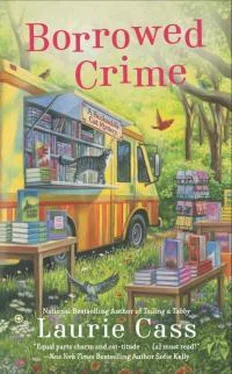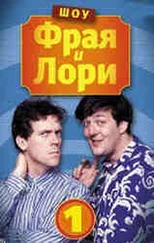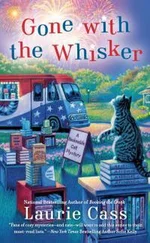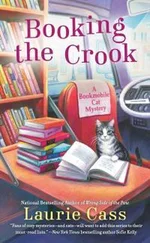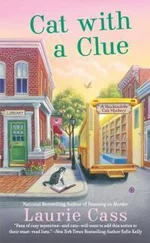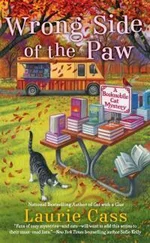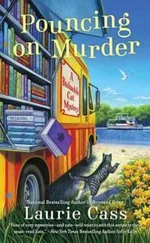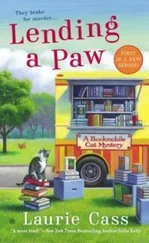“It’s not that,” I said quickly. “It’s just that Denise, Roger’s wife, she had a car accident a few days ago, and her mechanic just told me that the radiator hose had been cut.”
I waited for the light to dawn, but instead he simply nodded. “Yes, we know about that. The city police notified us.”
“And?” I asked. “Does that fit with the guy you think killed Roger?”
His smile took on a polite cast. “Ms. Hamilton, anyone truly trying to kill Denise Slade would have cut her brake lines. A slice in a radiator hose?” He shook his head. “She’s been known to call nine-one-one and report loud parties. Most likely she left her car in the drive, and one of the neighbor kids took the opportunity.”
“What if it wasn’t?” I leaned forward. “What if Denise was the target all along? What if Roger was killed by accident, because he was wearing her hat? What if Denise is still in danger?”
The detective stood. “Thanks for the information, Ms. Hamilton. We’ll consider what you said, but please let us do our jobs.”
I started to protest, to try to convince him that he was wrong, but he was already gone.
* * *
When I left the sheriff’s office, it was past ten o’clock and the stores were opening. The Round Table, our local diner, had been serving food for hours, but now the signs on the retail stores were being flipped from CLOSED to OPEN, lights were being turned on, and there was an overall feeling that the town was stretching its arms, yawning, and waking up to another day of business.
“Good morning, Minnie!”
I looked around for the origin of the voice and saw a woman waving at me from the entry of an antiques store. It was Pam Fazio, the owner of Older Than Dirt, and I didn’t understand why she was there.
“And a fine morning it is,” I said, smiling at her as I crossed the street. “But aren’t you going to be late for the Friends of the Library meeting?” For decades, Friends meetings had been held once a month on Saturday mornings.
Pam scowled. “Funny, Minnie, really funny.”
I blinked at her. “It was? I wasn’t trying to be.”
She blinked back. “Oh. Sorry. You must not have heard.”
No, I hadn’t, and whatever it was, I was getting a bad feeling about it.
“It was at the last Friends meeting,” Pam said, wrapping her arms around herself. She’d stepped outside to talk to me, and the cascading purple cardigan she wore over black pants and ankle-high shiny black boots wasn’t keeping out the cold.
“I guess you were out on the bookmobile that day,” she said. “By the time you got back it was all over.”
Yep, I was getting a very bad feeling. “What happened?”
“Denise Slade happened,” Pam practically spat. “I know I should feel sorry for her, with Roger being killed and her crash and everything, but that woman is impossible! Why Roger stayed married to her is a huge mystery.”
“What happened at the meeting?” I asked.
Pam rubbed her upper arms. “Typical Denise, really, but something about that day just sent me up the wall. Just because she’s the president doesn’t mean she has executive privilege to make decisions. She told us—told us!—that from now on the Friends were going to open the used bookstore on Wednesdays and Saturdays and not have it open any other time.” Pam’s face was a fierce scowl. “No vote, no nothing—just Denise changing the way we’ve done things for years because she thinks she knows the best way to do things.”
That sounded like Denise, all right.
She clutched at her arms, her fingernails digging deep into her sleeves. “No one else said a thing. Denise has them beat down to nothing. I said something like we should have a vote, or at least a general consensus. Denise gave a smirk—you know the one, right?”
I did, and my expression must have shown how much it annoyed me.
Pam nodded. “Yeah, well she gave that smirk and said there already was consensus, and if I didn’t like it, that I knew where the door was.” She stopped. Smiled a little. “So you know what I did?”
An uneasy feeling crinkled around in my stomach. “Do I really need to know?”
She grinned. “I lit into her the way I’ve been wanting to do for months. And you know what? It felt great.”
“Minnie? Minnie!” A woman was waving from the passenger’s window of a dark sedan.
“Surprised to see us?” she asked, laughing. “We’re headed to the gallery, if you have a few minutes.”
I stared at the mid-fiftyish couple in the car, who were both smiling broadly.
They weren’t supposed to be here. They should have been long gone. Why were they still in Michigan?
“Please say you can stop by,” the woman said. “We have a lot to tell you.”
I bet, I thought grimly. And I have a thing or two to tell you.
I turned back to Pam. “Sorry, but I have to go.”
“That’s okay,” she said, smiling. “All I was going to do was complain about Denise, and I’m sure you get enough of that without me.”
“Even the most tolerant of people have their breaking points,” I said. “And though I understand how you feel about Denise, I hope you’ll consider rejoining the Friends someday.”
Pam laughed. “Not as long as she’s there, but you’re a sweetie for trying. Anytime you want morning coffee, just let me know and I’ll bring an extra mug onto the porch.”
She ducked back inside to the warmth of her store, and I hurried the three blocks to my new destination.
By the time I burst in the front door of the Lakeview Art Gallery, I’d built up a nice head of steaming outrage. I shut the door firmly behind me and faced my good friends Barb and Russell McCade with my hands on my hips and my chin up. Behind them was a middle-aged woman I assumed was the new gallery manager, but introductions would have to wait.
“Why are you still here?” I asked, glaring at the smiling McCades. They were standing next to a large canvas, the back of which was to me. Though I was excited to see the painting, I didn’t move. There were things that needed to be said.
I kept glaring. “You promised you’d be gone before the first snowfall. You took solemn vows that you’d be in Arizona before there was any danger of driving on snowy roads. You promised me—”
Russell McCade, known to most as Cade, an internationally famous artist, grinned and turned the painting around. His left hand lost its grip, but Barb caught the painting before it hit the floor. “What do you think?” Cade asked. “Not bad for an old man still recovering from a stroke, yes?”
Oh, yes. I drank in the glorious colors, the uneven brushstrokes, the shapes and images and impressions taking me straight back to the end of summer, to dark blue evenings on the lake, to cool air and the knowledge that winter was coming. It was powerful and beautiful and haunting, and I didn’t want to look away.
“Sentimental schlock,” Cade said, quoting one of his few critics.
“But well-done sentimental schlock,” Barb added, quoting one of his thousands of supporters.
“I couldn’t finish this painting in Arizona,” Cade said. “I had to work on it here, and I couldn’t leave until it was done.”
He had a point, and a good one at that. It wouldn’t have been easy for him to visualize the greens and blues of summer in northern lower Michigan in the middle of the reds and browns of southern Arizona. Still, there had been a promise made, and I wasn’t letting them off the hook that easily.
“You promised,” I said, trying not to sound like an eight-year-old. “You said—both of you said—that you’d leave before snow, and if you didn’t, you’d call me instead of driving yourselves anywhere. It snowed ten inches barely a week ago, and did I get a phone call? No.”
Читать дальше
